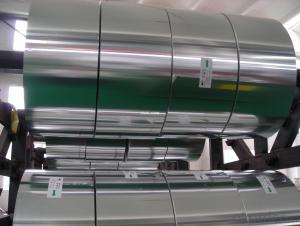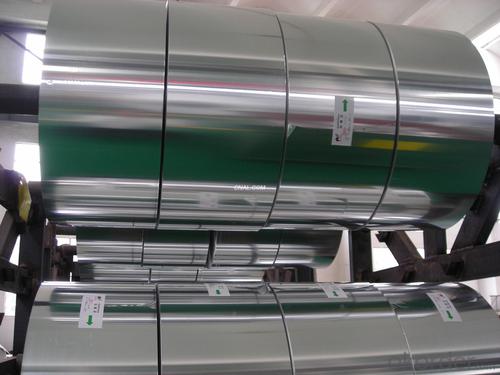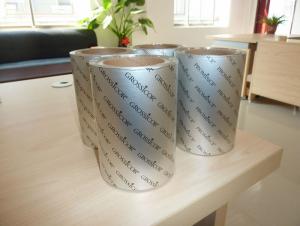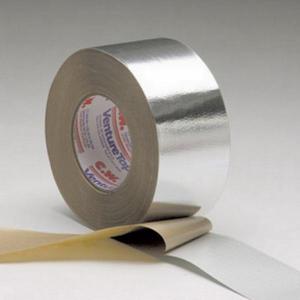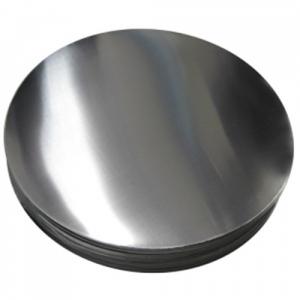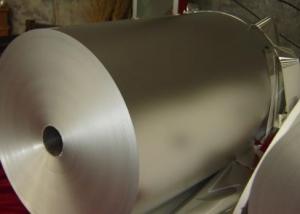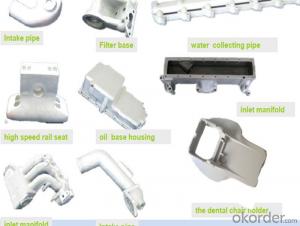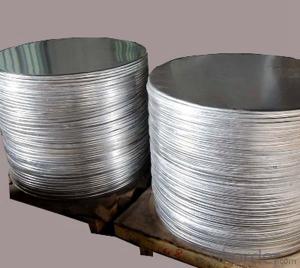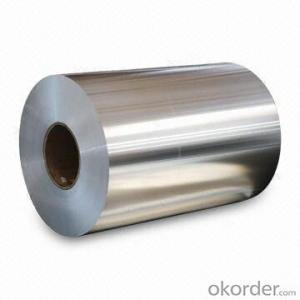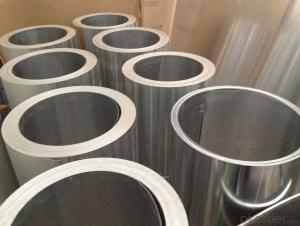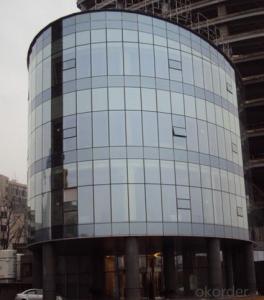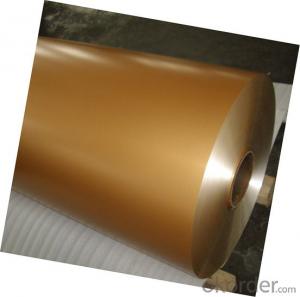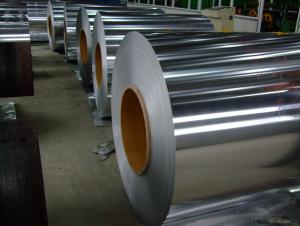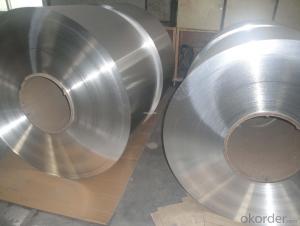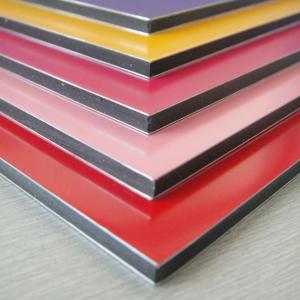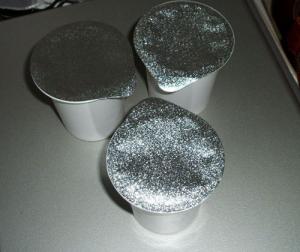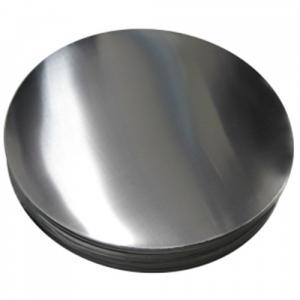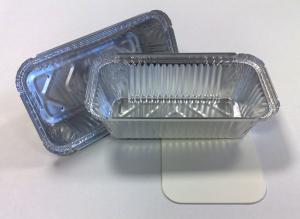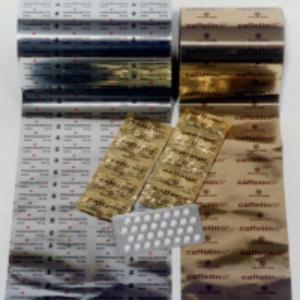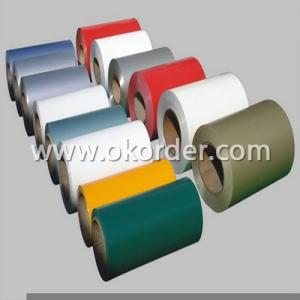Aluminum Anodized Aluminum Coil for Gutter Made in China
- Loading Port:
- Shanghai
- Payment Terms:
- TT OR LC
- Min Order Qty:
- 5 m.t.
- Supply Capability:
- 100000 m.t./month
OKorder Service Pledge
OKorder Financial Service
You Might Also Like
Specification
Product Description
Commodity: Aluminum coil jumbo rolls
Alloy: 1050/1060/1100/1200/3003/3004/3005/3105/5005/5052/5754/5083/6061/8011
Temper: O, H12,H14,H16,H18,H22,H24,H32,H112,T6
Gauge: 0.2mm-8mm
CC and DC material with higher tensile strength and bigger elongation
Company Information
CNBM is in aluminum foil, coil, sheet, plate for more than 10 years, thus we have rich product, technology and market experiences. With the world’s top aluminum processing equipments, experienced technical staff, cooperative and professional sales team, and the enterprise concept of responsibility and sharing, we have been widely focused since the day set up, and has gained high praise from customers home and abroad until now.
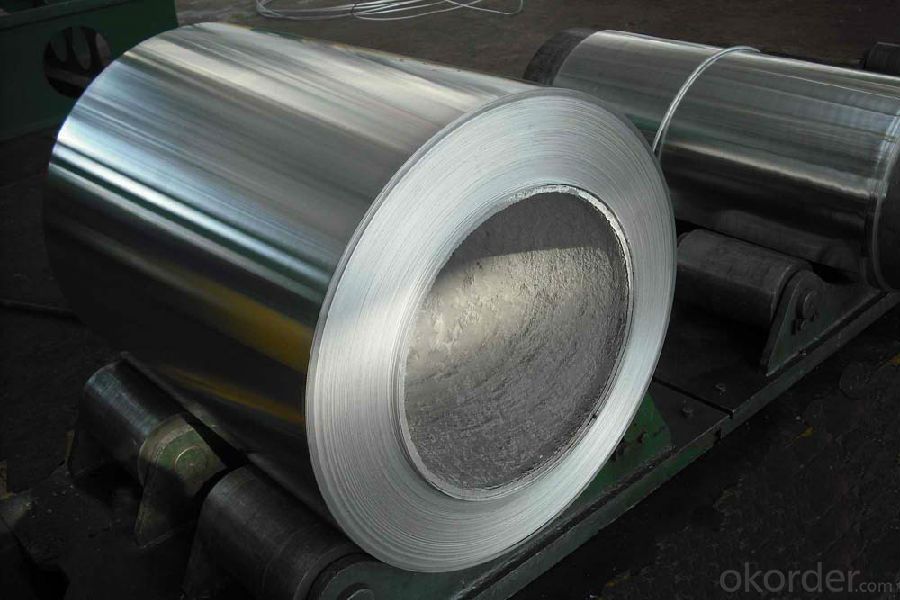
We specially produce and sell all kinds of aluminum foil, coil, sheet and plate with different sizes and applications. For Foil product, the main gauge ranged from 0.006mic to 0.10mm, and width ranged from 200mm to 2000mm. Alloys are 1235/ 1050/1060/1200/8079/8011/8006 etc, and ID is 76mm, 152mm. The main application includes flexible package, cigarette foil, golden card foil, pharmaceutical foil, household foil, container foil, air conditioner foil, lid foil, beer mark foil etc. We also can supply aluminum coil, strip, sheet and plate in alloy of 1000 series, 3000 series, 5000 series, 6000 series and 8000 series etc.
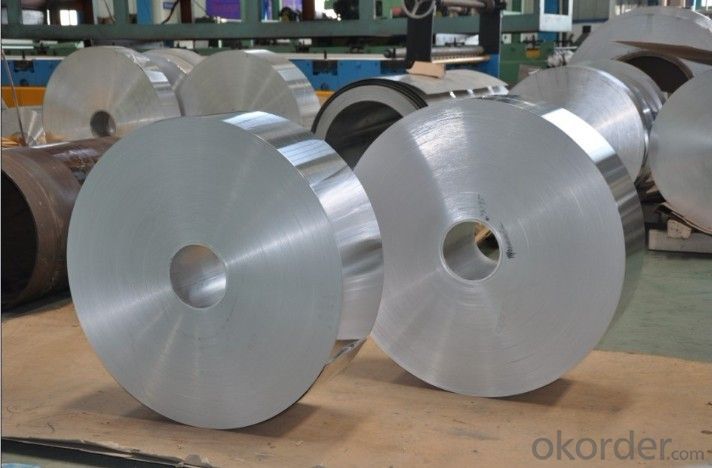
CNBM has passed ISO9001 and ISO14001 successfully, and also approved by American Food and Drug Administration (FDA). By the good product quality and professional service, we have set up a complete sales network. Until now, our products has exported to more than 20 countries and regions including Europe, USA, Canada, Brazil, Southeast Asia and middle east etc.
Our main products for aluminum coils are as follows:
Commodity | Alloy | Temper | Thickness /mm | Width /mm | |
Base material | 1235 1200 1140 8*** | H14 H18 | 0.25-1.00 | 950-1340 | |
Coil for PS | 1050 1060 | H18 | ≥0.2 | 830/920 1030/1050 | |
Sheets for PS | 1050 1060 1070 | H18 | 0.13-0.3 | 650-1300 | |
Strip for venetian blinds | 5052 | H19 | 0.13-0.3 | 300-1300 | |
Coils for composite panels | 1100 3003 3005 | H18/HX2 HX4/HX6 HX8 | 0.03-1.0 | 1000-1300 | |
Coils for other uses | 1100 1235 3004 5052 8011 | H14 H18 H24 O | 0.3-0.4 | 1000-1600 | |
Sheets/Strips for other uses | 5052 | O/H32/H34 | 0.07-2.0 | 950-1550 | |
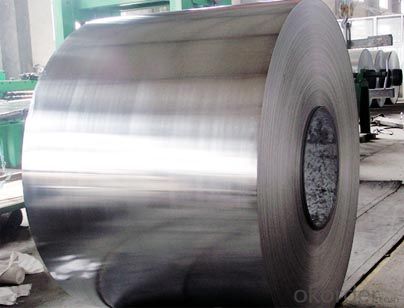
Our Services
CNBM is ready to assist with any product needs or enquiries. We value our customers and welcome your thoughts and feedback.
Please send comments, questions and requests through alibaba or our personal contact so they can be directed to the appropriate department.
About samples: Based on our company rules, a few samples are willing to be offered, but clients are requested to pay freight.
Working time:9:00~17:30(GM+8) from Monday to Friday, but you also can contact with us via personal contact information during our leisure time. We will try our best to offer you service in 24*7 hours.
Any quality, quantity problems are occured, response you will get in time not over more 24 hours after we recieve your complains. Problems will be solved in one week throught friendly negotiation.
- Q: This question asks about the typical issues that arise due to the corrosion of aluminum.
- <p>Common problems with aluminum corrosion include loss of structural integrity, which can compromise the safety and performance of aluminum components. Corrosion can lead to a decrease in mechanical strength, increased brittleness, and a reduction in the electrical and thermal conductivity of aluminum. Additionally, aesthetic issues such as discoloration and pitting can occur, affecting the appearance of aluminum surfaces. Environmental factors and improper handling can accelerate corrosion, leading to costly repairs or replacements.</p>
- Q: What is the measure of aluminum's strength, specifically its yield strength and tensile strength?
- <p>Aluminum's strength is typically measured in terms of its yield strength and tensile strength. The yield strength of aluminum varies depending on the alloy and heat treatment, but it generally ranges from 10 to 45 MPa. Tensile strength, which is the maximum stress that aluminum can withstand before breaking, is typically between 90 to 600 MPa for different aluminum alloys. These values make aluminum a lightweight yet strong material suitable for various applications, including construction, automotive, and aerospace industries.</p>
- Q: Explain the impact of aluminum on manufacturing processes in a few sentences.
- <p>The use of aluminum significantly affects manufacturing processes by offering several advantages. It is lightweight, which reduces the weight of products and can lead to fuel efficiency in transportation sectors. Aluminum's high strength-to-weight ratio makes it ideal for structural components. Its excellent thermal and electrical conductivity allows for efficient heat dissipation and electrical transmission. Additionally, aluminum is non-magnetic and non-corrosive, which is beneficial for certain applications. The metal is also easily recyclable, contributing to sustainability in manufacturing. These properties make aluminum a popular choice in industries such as automotive, aerospace, construction, and electronics, enhancing the efficiency and performance of manufacturing processes.</p>
- Q: Is it safe and practical to use old aluminum cookware that has been stored for a long time?
- <p>Yes, you can reuse old aluminum cookware, but it's important to check its condition first. Look for any signs of damage, such as pits, scratches, or warping, as these can affect the cookware's performance and potentially release aluminum into your food. If the cookware is in good condition, clean it thoroughly and season it if necessary. Remember, aluminum cookware is not suitable for acidic foods or high heat, so use it accordingly to prolong its lifespan and maintain food safety.</p>
- Q: Is it safe and practical to use pure aluminum foil for wrapping food for storage?
- <p>Yes, you can use pure aluminum foil to wrap food for storage purposes. Aluminum foil is widely used for its excellent barrier properties against air, moisture, and light, which helps to preserve food freshness and prevent spoilage. It's also heat resistant, making it suitable for both refrigeration and cooking applications. However, ensure the foil is food-grade and avoid using it with acidic or salty foods as these can cause a reaction with the aluminum. Always follow the manufacturer's guidelines for safe use.</p>
- Q: Is it possible to recycle aluminum at home?
- <p>Yes, aluminum can be recycled at home. It's easy to recycle as it's a lightweight, durable, and infinitely recyclable material. Simply clean and flatten aluminum cans, foil, and other aluminum products before placing them in your recycling bin. However, not all home recycling programs accept all types of aluminum, so check with your local recycling center for specific guidelines.</p>
- Q: This question asks about the typical applications of aluminum pipes in various industries and settings.
- <p>Aluminum pipes are commonly used in a variety of applications due to their lightweight, corrosion resistance, and high thermal conductivity. They are extensively used in the automotive industry for parts like radiators and heat exchangers. In construction, aluminum pipes are utilized for heating, ventilation, and air conditioning (HVAC) systems. They are also used in the beverage industry for conveying and cooling liquids, as well as in the aerospace industry for fuel and hydraulic lines due to their strength-to-weight ratio. Additionally, aluminum pipes are found in industrial settings for compressed air and gas lines, and in marine applications for fuel and water systems.</p>
- Q: This question asks for examples of alloys that include aluminum as one of their components.
- <p>Aluminum is a versatile metal that forms many alloys, enhancing properties like strength, corrosion resistance, and electrical conductivity. Some common aluminum alloys include: 1. 6061, used in aircraft structures and automotive parts due to its good mechanical properties and machinability. 2. 2024, known as 'Alclad', is strong and used in aircraft structures. 3. 7075, one of the strongest aluminum alloys, used in aerospace and military applications. 4. 3003, used for cooking utensils and chemical equipment due to its good corrosion resistance. 5. 5052, used in marine applications and food processing equipment for its excellent corrosion resistance. These alloys are widely used in various industries due to their unique properties.</p>
- Q: What are the primary applications and benefits of aluminum in various industrial sectors?
- <p>Aluminum is extensively used in the industry due to its lightweight, high strength, and excellent corrosion resistance. It is a key material in the aerospace industry for aircraft construction to reduce weight and improve fuel efficiency. In the automotive sector, aluminum is used for engine parts and body panels to enhance fuel economy and performance. The construction industry utilizes aluminum for window frames, roofing, and structural components due to its durability and low maintenance. Aluminum is also prevalent in the packaging industry for food and beverage cans, and in electrical applications for wiring and transformers due to its high conductivity. Its recyclability makes it an environmentally friendly choice, further enhancing its industrial applications.</p>
- Q: This question asks for examples of how aluminum is used in architectural designs.
- <p>Aluminum is a versatile material in architecture due to its strength, light weight, and resistance to corrosion. Some examples include the Empire State Building's spire, which was originally clad in aluminum, and the Petronas Twin Towers in Kuala Lumpur, known for their aluminum and glass facade. The Guggenheim Museum in Bilbao features an aluminum-clad exterior, and the Beijing National Stadium, also known as the Bird's Nest, utilizes aluminum for its intricate lattice structure. Additionally, aluminum is commonly used in curtain walls, window frames, and roofing systems due to its durability and sustainability.</p>
Send your message to us
Aluminum Anodized Aluminum Coil for Gutter Made in China
- Loading Port:
- Shanghai
- Payment Terms:
- TT OR LC
- Min Order Qty:
- 5 m.t.
- Supply Capability:
- 100000 m.t./month
OKorder Service Pledge
OKorder Financial Service
Similar products
Hot products
Hot Searches
Related keywords
